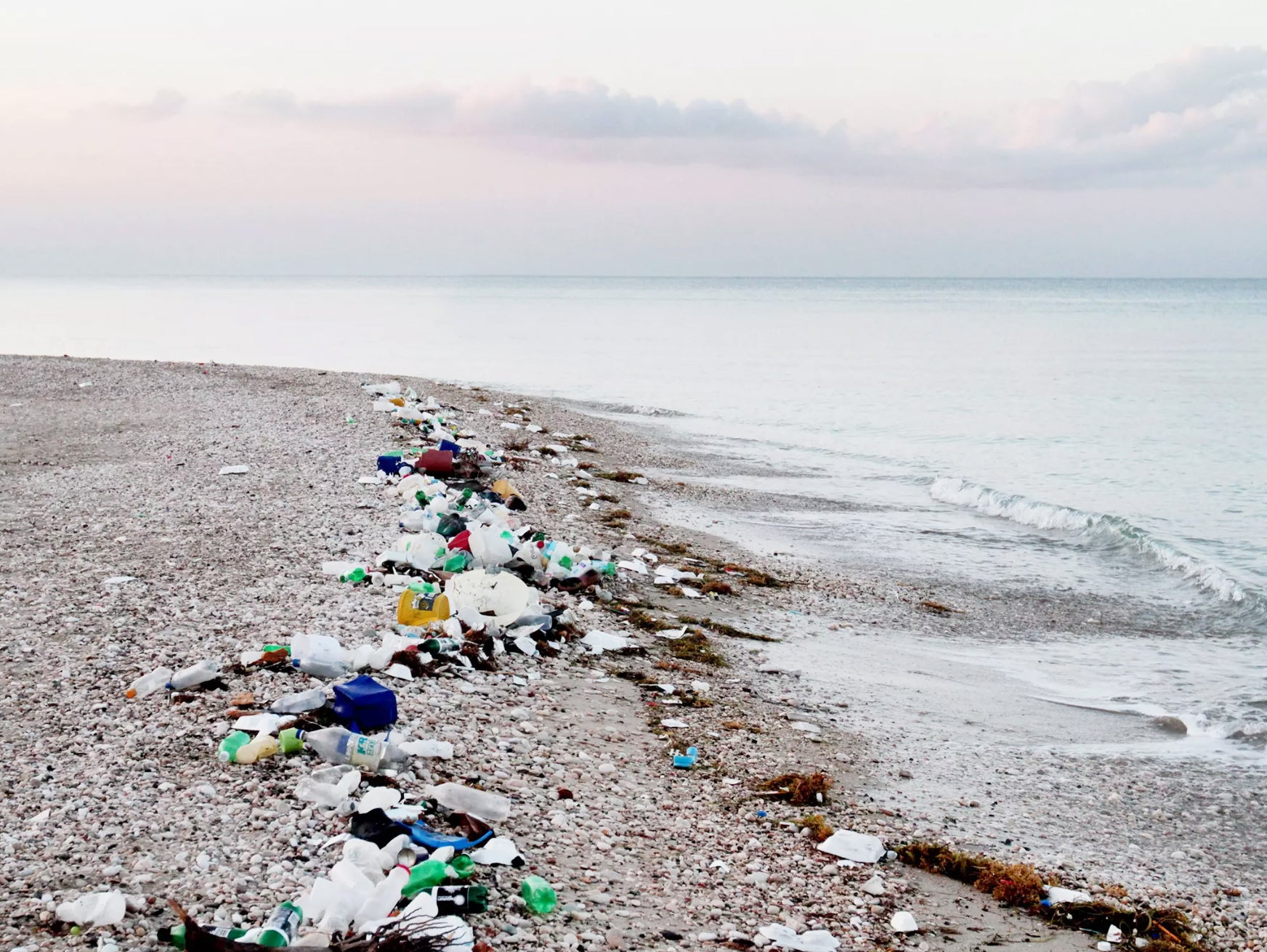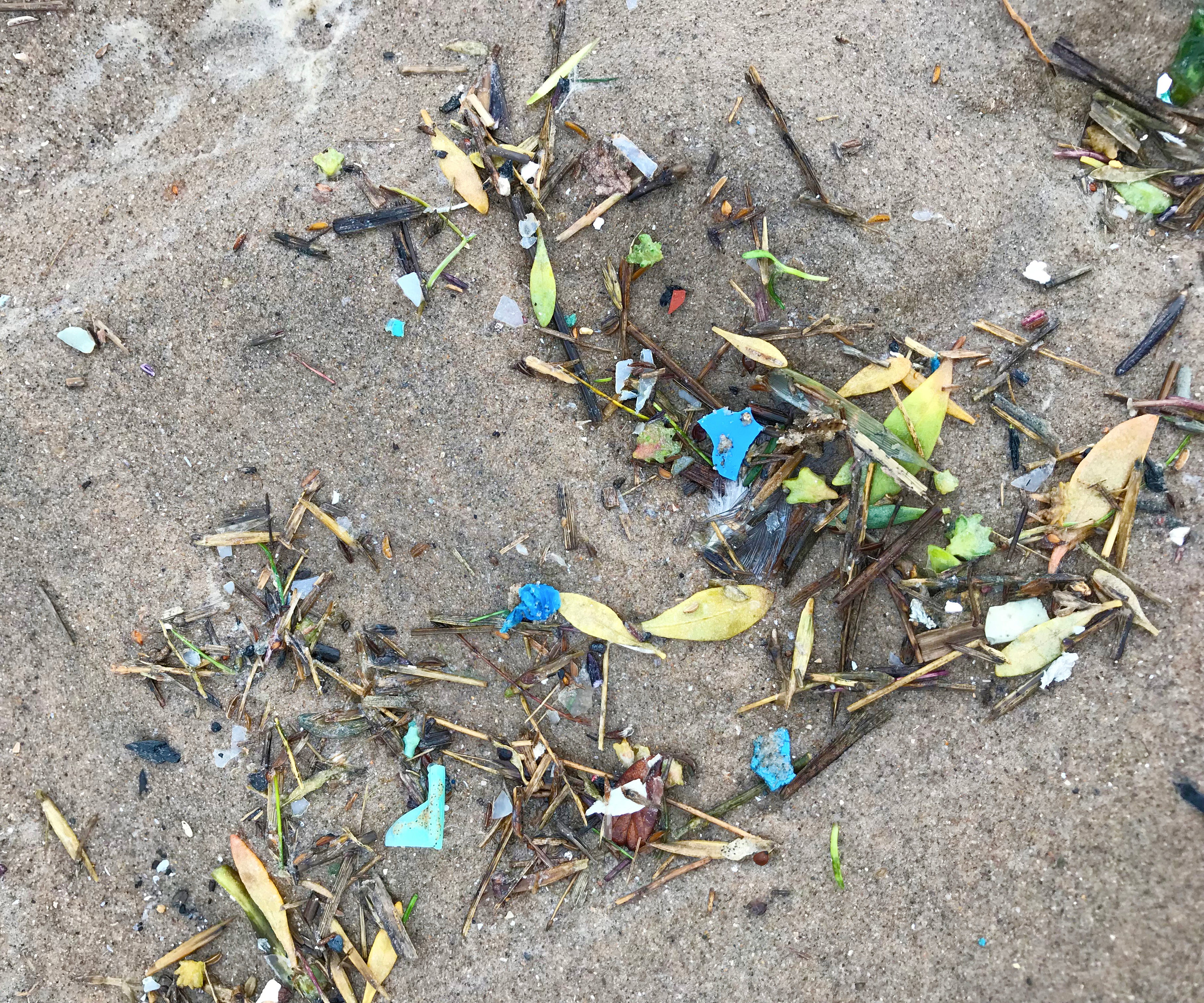The Plastic Issue

Humans have made a jaw-dropping 8.3 billion metric tons of plastic to date.
And 76% of this is now waste. To give you an idea of the sheer scale of this amount, 8.3 billion tons is the same weight as = 822,000 x Eiffel Towers, 80 billion x Blue Whales or 1 billion x Elephants. Half of all plastics ever made were produced in the last decade alone. The greatest issue we're facing is that plastic simply does not degrade. Once we've made it, used it and binned it - it's not going anywhere. In fact, it's likely that it would take 20 human generations for a plastic bottle to completely decompose.

So we've got all this plastic, let's just recycle it.
Unbelievably less than 10% of the 300 million tons of plastic that is being produced globally each year gets recycled, leaving the rest headed to over-packed hazardous landfills and seeping into our waterways.
Our society's dependency on plastic means the amount being produced is on the rise. The reality is humans haven't created a waste management plan that can deal with this amount of non-biodegradable waste. So with the lack of waste management and not enough time, research or funds going into new recycling facilities, an astonishing 8 million tons of disposed plastic is entering our oceans every year.
Plastic waste strewn across our beaches is not a pretty sight, but it's what's going on beneath the waves and within the eco-system which is signalling a grim future for our planet.
What's happening to all that plastic in our oceans.
Plastic is a man-made substance made from crude oil, so rather than biodegrading like natural products would (wood, cotton), plastic instead starts breaking up into smaller toxic pieces.
These toxic particles of broken-down plastic are known as 'microplastics' and they are being digested by Zooplankton, the base of the food chain, all the way up to Fish, Seabirds, Turtles, Dolphins, Whales and Humans. In fact it's estimated that Europeans alone ingest about 11,000 microscopic pieces of plastic every year.
It's now believed that by 2050, plastic will outweigh fish in the world's oceans.

Taking responsibility.
Plastic pollution is all of our responsibility and the choices we make in our every day lives can either add to or improve the situation. Reducing our use of single-use plastics, such as using a reusable water bottle and shopping bag as well as refusing single-use plastic straws in restaurants and bars are simple, yet hugely effective changes that help secure the future of our oceans.
Stopping it at the source.
With awareness of the effects of plastic pollution on the rise, there is a growing number of companies and manufacturers that are creating innovative ways to slow down the production of new plastic materials in favour of using existing sustainable resources. Recycling helps to reduce energy usage, reduce the consumption of new raw materials and reduces air and water pollution (from land fills and marine waste).
Our mission is to help reduce the negative impact of plastic on the environment by recycling post-consumer and industrial plastic waste into high quality swimwear. It's our duty as a business, consumer and human being to take care of our planet and help secure a future for the next generations.
